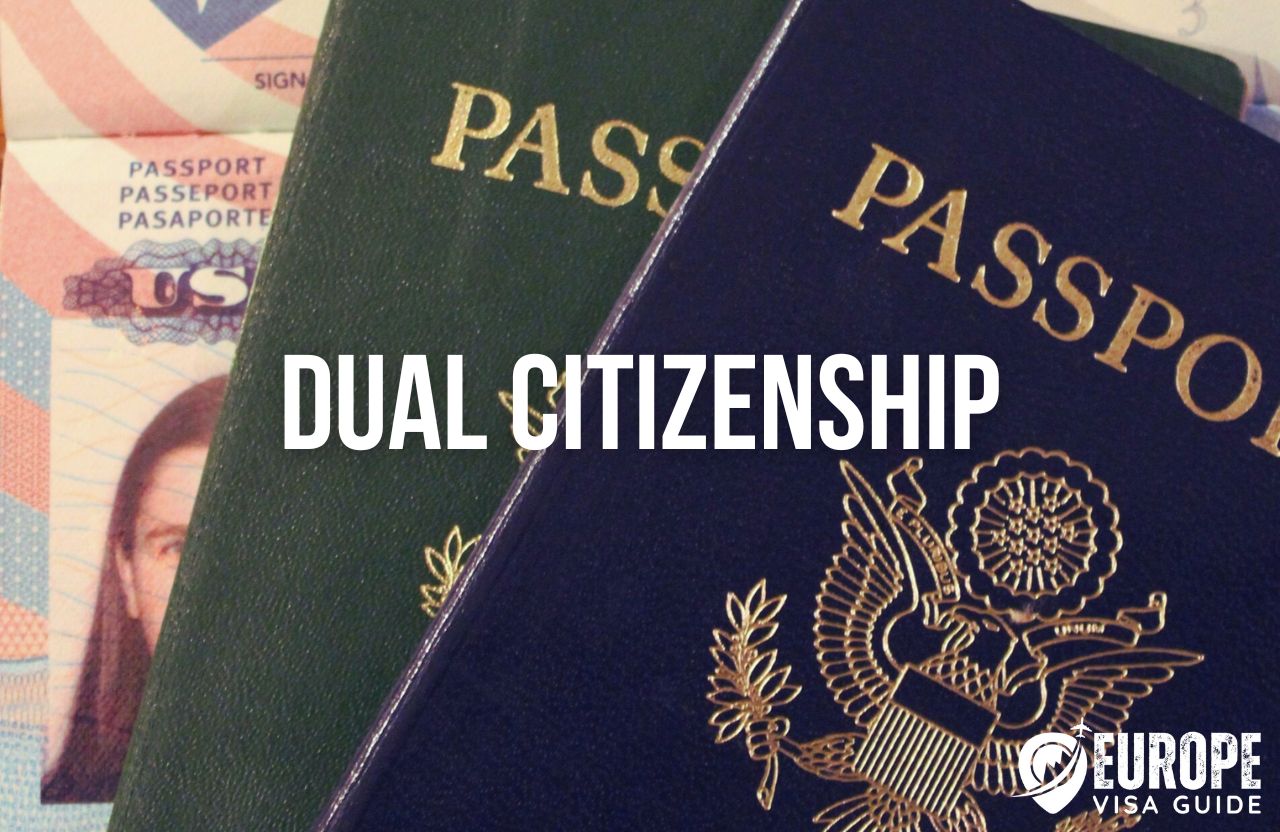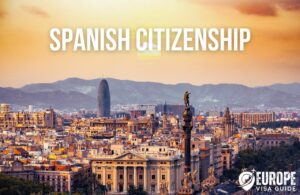
Table of Contents
Introduction
Dual citizenship meaning, the status of holding citizenship in two countries, offers numerous benefits and opportunities. Whether it’s the freedom to travel, increased job prospects, or access to better healthcare and education, dual citizenship can significantly enhance your quality of life. In this comprehensive guide, we will explore the concept of dual citizenship, its advantages and disadvantages, and provide you with the necessary information on how to obtain a second passport. So, fasten your seatbelts as we embark on this exciting journey to uncover the world of dual citizenship.
What is Dual Citizenship?
Dual citizenship refers to the legal status of an individual holding citizenship in two countries simultaneously. It grants them the rights and responsibilities associated with each citizenship. Obtaining dual citizenship can be achieved through various means, such as birth, ancestry, marriage, or residency. Each country has its own rules and regulations regarding dual citizenship, with some allowing it freely and others imposing restrictions.
Citizenship is the bond between an individual and their nation-state. It can be acquired through descent, where citizenship is passed down through generations, or by birth, where an individual automatically becomes a citizen of the country they are born in. Naturalization, on the other hand, is the process of obtaining citizenship through legal means, such as residency or investment.
Having dual citizenship provides several advantages, including enhanced mobility, expanded job opportunities, and access to social benefits. However, it also comes with certain challenges and considerations. Let’s explore the pros and cons of dual citizenship in more detail.
The Benefits of Dual Citizenship
1. Global Mobility
One of the most significant advantages of dual citizenship is the freedom to travel and reside in multiple countries without restrictions. Holding a second passport provides access to a broader range of visa-free travel destinations, allowing for seamless exploration and business opportunities around the world. Individuals with dual citizenship can easily navigate through immigration processes and avoid the limitations imposed on single citizenship holders.
2. Expanded Job Opportunities
Dual citizenship opens up a world of employment possibilities. With the ability to work in two countries, individuals can explore international job markets, expand their professional networks, and seize career opportunities abroad. This increased flexibility can lead to higher income potential, better job satisfaction, and exposure to diverse work environments.
3. Socioeconomic Benefits
Dual citizenship can provide access to a higher quality of life, including superior healthcare systems, education, and social welfare programs. Citizens often enjoy privileges and benefits that may not be available to non-citizens, such as subsidized healthcare, affordable education, and retirement benefits. Dual citizens can also invest in property, start businesses, and participate in government programs in both countries.
4. Security and Stability
In an increasingly turbulent world, dual citizenship offers an added layer of security and stability. Having a second passport provides a safety net in times of political instability, social unrest, or natural disasters. Dual citizens can more easily escape from dangerous situations and seek refuge in their alternative country of citizenship. Additionally, in the event of a crisis, having two passports allows for greater mobility and access to consular assistance and protection.
5. Cultural Connection and Identity
Dual citizenship provides individuals with a unique connection to their heritage and cultural roots. It allows them to maintain a sense of belonging in both countries and participate in the cultural, social, and political life of each. Dual citizens can celebrate their diverse identities, embrace multiculturalism, and contribute to the development of both nations.
6. Family Benefits
Dual citizenship can have significant advantages for families. It facilitates family reunification, enabling close relatives to live together and maintain strong bonds across borders. Dual citizens can also pass down their citizenship to their children, ensuring future generations can enjoy the benefits of dual nationality.
7. Political Participation
Being a dual citizen grants individuals the opportunity to participate in the political processes of both countries. They can exercise their right to vote, run for public office, and influence the policies and decisions that shape the future of their respective nations. This dual political engagement allows for a broader perspective and greater representation.
Why Dual Citizenship is Bad
1. Dual Obligations and Responsibilities
Dual citizenship comes with a set of responsibilities and obligations in each country of citizenship. Individuals must comply with the laws, pay taxes, and fulfill civic duties in both nations. This can sometimes lead to conflicting obligations or complexities in legal and financial matters, especially when countries have different legal systems or tax regulations.
2. Risk of Military Service
Certain countries require their citizens to fulfill military service obligations. Dual citizens may be subject to compulsory military service in both countries, depending on their respective laws. This can pose challenges for individuals who do not wish to serve or have conflicting obligations between their two countries of citizenship.
3. Citizenship-Based Taxation
Some countries, such as the United States, impose citizenship-based taxation, meaning that citizens are taxed on their worldwide income, regardless of their country of residence. This can result in complex tax obligations and potential double taxation for dual citizens. It is important to understand the tax implications of dual citizenship and seek professional advice to navigate this aspect effectively.
4. Travel Restrictions
Although dual citizenship generally grants the freedom to travel more easily, there may still be limitations. Certain countries may not recognize or acknowledge the second citizenship, treating dual citizens as solely their own nationals while within their borders. This can lead to complications and potential risks when traveling to these countries.
5. Loss of Original Citizenship
In some cases, acquiring a second citizenship may require renouncing or forfeiting the original citizenship. This decision can be emotional and may result in a loss of identity or connection to one’s birth country. It is crucial to thoroughly research and understand the laws and implications before making a decision to give up one’s original citizenship.
How to Get Dual Citizenship
Obtaining dual citizenship can be a complex process that varies depending on the country and the individual’s circumstances. There are several pathways to acquiring dual citizenship, how to apply for dual citizenship:
1. Descent
Obtaining dual citizenship through descent involves proving ancestral ties to a country. If your parents, grandparents, or sometimes even great-grandparents are citizens of another country, you may be eligible to apply for citizenship based on your lineage. Each country has specific requirements and documentation needed to prove eligibility.
2. Birth
Dual citizenship by birth is granted when an individual is born in a country that follows the principle of “jus soli” (right of soil) or “jus sanguinis” (right of blood). Jus soli grants citizenship based on the place of birth, while jus sanguinis grants citizenship based on the citizenship of one or both parents. It is important to understand the specific laws and criteria of the country in question.
3. Marriage
Marriage to a citizen of another country can be a pathway to dual citizenship. Many countries allow individuals married to citizens to apply for citizenship after meeting specific requirements, such as a minimum period of marriage or residency. It is important to note that some countries have stringent measures in place to prevent sham marriages solely for the purpose of obtaining citizenship.
4. Naturalization
Naturalization is the process of acquiring citizenship through residency, investment, or other means determined by the country’s laws. This pathway often requires applicants to meet specific residency requirements, demonstrate proficiency in the national language, pass a citizenship test, and show integration into the country’s society. Some countries offer citizenship by investment programs, where individuals can obtain citizenship by making a significant financial contribution to the country’s economy.
It is essential to research and understand the specific requirements, timelines, and costs associated with each pathway before embarking on the journey to obtain dual citizenship. Consulting with immigration lawyers or experts can provide valuable guidance and support throughout the process.
Countries That Allow Dual Citizenship
The regulations and policies regarding dual citizenship vary from country to country. While many countries allow dual citizenship, some have restrictions or do not recognize it at all. Here is a breakdown of countries allowing dual citizenship, organized by region:
Africa
- Angola
- Burundi
- Comoros
- Cabo Verde
- Côte d’Ivoire
- Djibouti
- Gabon
- Gambia
- Ghana
- Kenya
- Lesotho
- Mali
- Morocco
- Mozambique
- Niger
- Nigeria
- Rwanda
- Senegal
- São Tomé and Príncipe
- Sierra Leone
- Sudan
- Tunisia
- Uganda
- Zambia
The Americas
- Saint Kitts and Nevis
- Dominica
- Antigua and Barbuda
- Saint Vincent and the Grenadines
- Grenada
- St Lucia
- Barbados
- Bahamas
- Belize
- Suriname
- Guyana
- Trinidad and Tobago
- Jamaica
- Uruguay
- Panama
- Costa Rica
- Nicaragua
- Paraguay
- Honduras
- Dominican Republic
- Haiti
- Bolivia
- Ecuador
- Guatemala
- Chile
- Venezuela
- Peru
- Canada
- Argentina
- Colombia
- Mexico
- Brazil
- United States
Middle East and Asia-Pacific
- Syria
- Iraq
- Israel
- Lebanon
- Pakistan (with certain countries)
- United Arab Emirates
- Australia
- Cambodia
- Fiji
- New Zealand
- Papua New Guinea
- Philippines
- South Korea
- Sri Lanka
- Taiwan (for those of Taiwanese descent)
- Thailand
- Tonga
- Vanuatu
- Vietnam
Europe
- Belgium
- Bulgaria (for those of Bulgarian descent)
- Croatia (for those of Croatian descent)
- Cyprus
- Czech Republic
- Denmark
- Finland
- France
- Germany (with other EU countries or Switzerland)
- Greece
- Hungary
- Ireland
- Italy
- Latvia (for EU/EEA, NATO, or special agreement countries)
- Luxembourg
- Malta
- The Netherlands (under certain conditions)
- Poland
- Portugal
- Romania
- Slovakia
- Slovenia (for those of Slovenian descent)
- Spain (for those of Spanish descent or Ibero-American heritage)
- Sweden
- Vatican City
It is crucial to note that citizenship laws are subject to change, and it is essential to consult the latest legislation and regulations of both your current and desired countries of citizenship.
Traveling with Dual Citizenship
Having dual citizenship can greatly enhance your travel experiences. However, it is important to understand the implications and procedures when traveling with two passports. Here are some key points to consider:
- Always travel with both passports, even if you primarily use one. This ensures you have access to consular assistance from both countries in case of emergencies or lost passports.
- Use the passport that provides the best entry conditions for the country you are visiting when booking your travel and checking in at the airport.
- Be aware of the entry requirements for each country. Some countries may require you to use the passport of your citizenship when entering or leaving the country.
- Research and understand any travel restrictions or limitations imposed by certain countries on dual citizens. Some countries may not recognize your alternative citizenship, treating you solely as a citizen of their own country while within their borders.
- Familiarize yourself with the visa requirements for each passport. While dual citizenship may grant visa-free access to many countries, some destinations may still require a visa for certain passport holders.
- Keep track of any changes in visa policies or travel advisories for your citizenship countries. Stay informed about any potential risks or restrictions that may affect your travel plans.
Dual Citizenship and Security Clearance
The impact of dual citizenship on security clearance varies depending on the country and the specific circumstances. In the United States, having dual citizenship alone does not automatically disqualify individuals from receiving security clearance. However, it may raise additional questions during the clearance process, particularly regarding loyalty and potential conflicts of interest.
Different countries have their own policies and criteria for granting security clearance to dual citizens. It is advisable to seek expert advice and consult with professionals familiar with the security clearance procedures in your country of citizenship.
Conclusion
Dual citizenship offers a world of opportunities, from increased global mobility to expanded job prospects and a deeper connection to your heritage. This ultimate guide has provided an in-depth exploration of dual citizenship, its advantages and disadvantages, and the various pathways to obtaining a second passport. Remember, each country has its own laws and regulations regarding dual citizenship, so thorough research and expert guidance are essential. By understanding the complexities and benefits of dual citizenship, you can make informed decisions that will shape your future and open doors to a world of possibilities.





